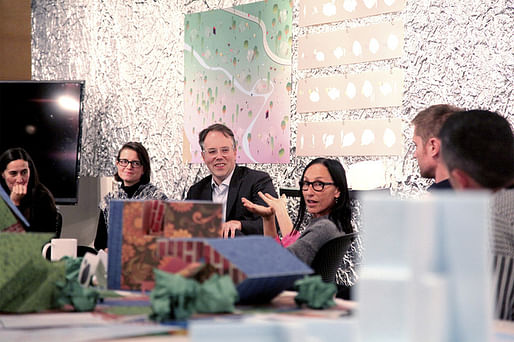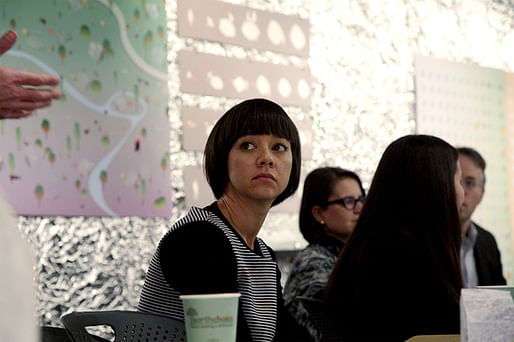
A practice session is different than the real thing, the big game, the final performance. All the pressures and impingements of the real thing are present—its rules, constraints, and mandate to perform—but it’s also just practice. It happens again and again, and the awareness of that repetition, of any one session being just another in an extensible chain that stretches backward and forward, grants certain permissions: risks can be taken, roles can be rehearsed and reassigned, embarrassments are quickly forgotten, inhibitions fall away. Over time, practice makes the difficult look easy and the accumulated glitches and idiosyncrasies of each session allow for unanticipated discoveries. Practice sessions are real, and then some.

Over the next five years, ten architectural practices will be invited to Taubman College to run a Practice Session. Each session centers on an immersive four-day design charette that culminates in a juried review and exhibition. These sessions are not workshops in the conventional sense. Invited practices are not selected to repeat a known and routinized working method in collaboration with students. Instead, invitees are called to work in an experimental mode, where everything is subject to the pressures of practice on design: the design of the session topic, the design of the work space where the session is held, the design of the way the session itself occupies the institution of Taubman College, and the design of the thing(s) produced by the practice session.
Practice Sessions is ideologically motivated. If contemporary architecture is formally and stylistically inventive, it also lacks an extra-disciplinary agenda. The converse is likewise true: architecture that makes a proposal (or is in the self-styled business of “politics” or “addressing the big issues”) is aesthetically allergic and holds little interest for the discipline. These decoupled parts—form and the agency of proposition—may have once been united in the explicitly social agendas of the modernists or in the culturally stable forms of the classicists, but it is no longer the case. Practice Sessions will give form back to agency while giving form a job to do. The sessions are a place to take a crack at this admittedly grandiose charge in a largely risk free environment while acknowledging our place in a longer trajectory of precedents aimed at similar ends. To this end, invited architectural practices are selected based on the degree to which their body of work shows promise toward reconciling form with the proposal. Each session runs four days, beginning with a Friday evening lecture, continuing with working sessions through the weekend, and concluding with a review and exhibition opening Monday afternoon. Invited practices are provided institutional support, materials and supplies, a workspace, and a cohort of eager students ready to work. Sessions take place in the College gallery, where invited practices are encouraged to import their studio or office into the institution of the college.

The inaugural Practice Session was held November 2015 with Hilary Sample and Michael Meredith of MOS Architects who led students in a contemplation of indifference as a mode of practice and the design of a house and an object. In January 2016, Sam Jacob will lead Practice Session No. 2. Titled “One Thing after Another.” The session asks students to consider the way “architecture and objects transmit from one thing to another” and the ways in which “the act of transmission leaves its own mark in the world.” Practice Sessions, a Taubman College of Architecture and Urban Planning program, is led by Assistant Professors Ellie Abrons and Adam Fure, in collaboration with Andrew Holder of Harvard Graduate School of Design, and funded by the University of Michigan’s “Third Century Initiative.”
www.taubmancollege.umich.edu/practicesessions
About the authors:
Ellie Abrons is an assistant professor of architecture at University of Michigan Taubman College of Architecture and Urban Planning and the principal of EADO.
Adam Fure is an assistant professor of architecture at University of Michigan Taubman College of Architecture and Urban Planning and the principal of SIFT Studio.
No Comments
Block this user
Are you sure you want to block this user and hide all related comments throughout the site?
Archinect
This is your first comment on Archinect. Your comment will be visible once approved.